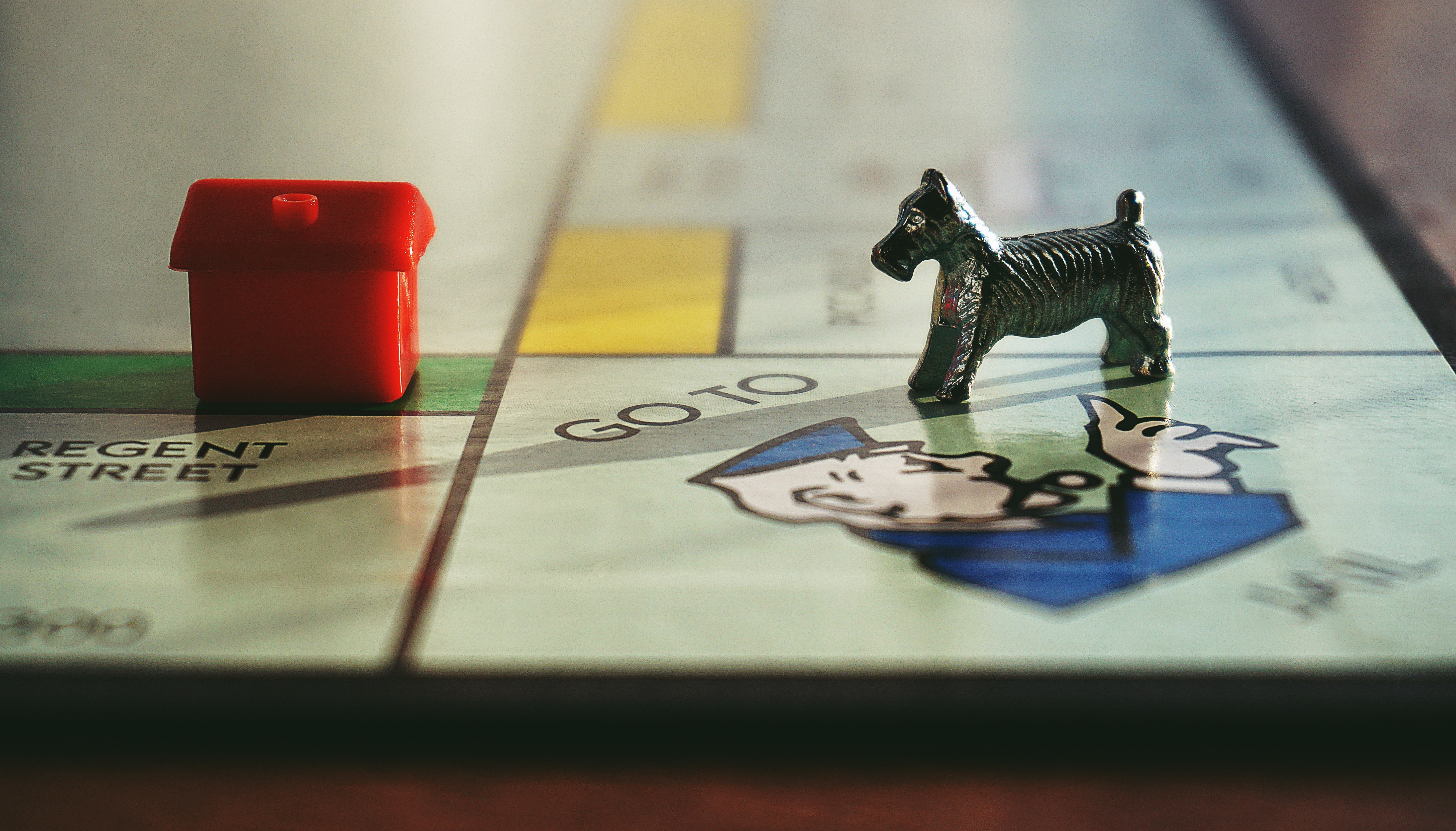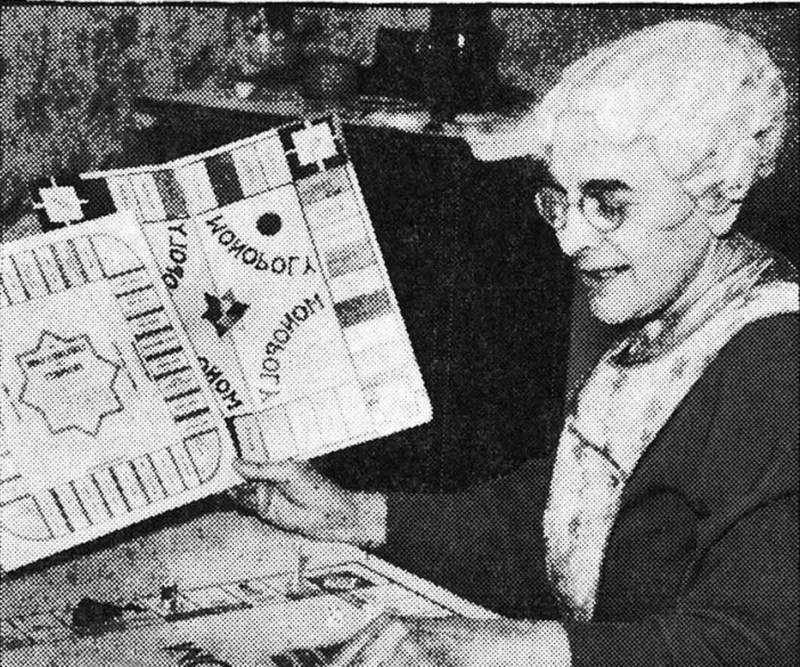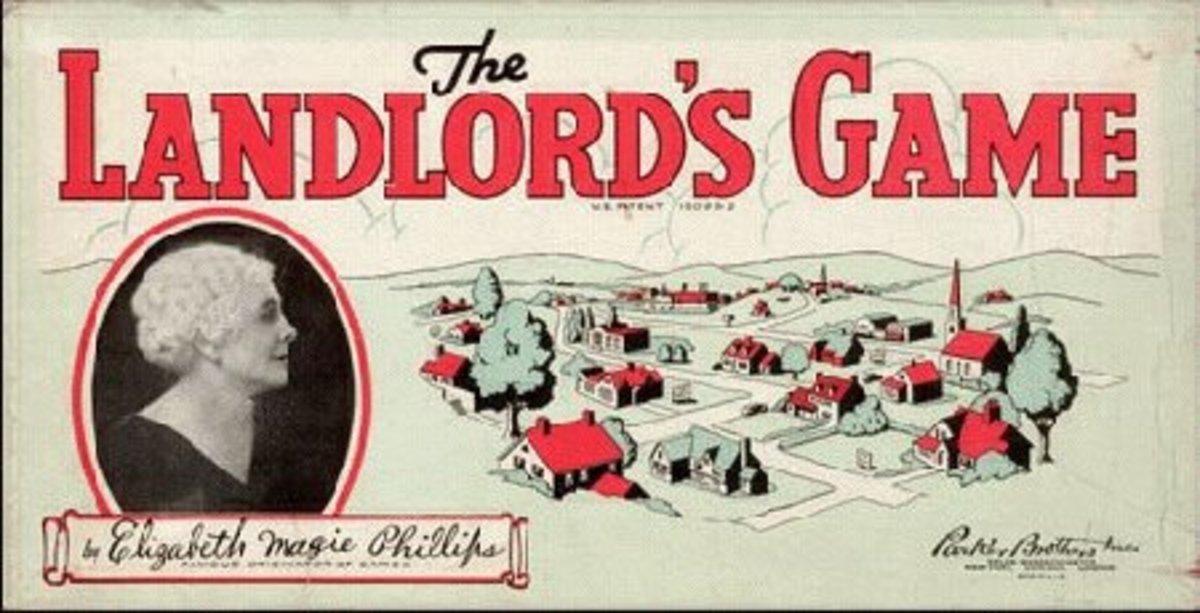

1903
The Origin of Monopoly
Monopoly was originally created to show the problems with capitalism, not promote it.
Monopoly is the biggest selling game of all time, selling over 250 million copies since its launch by the Parker Brothers company in 1934. But whereas the aim of the game we all know today the ambition is to own everything and run everyone else into bankruptcy, the origins of this game were actually intended to highlight the flaws of capitalism.
In 1973, Professor Ralph Anspach created a game called Anti-Monopoly to show a better way than capitalism and after being sued by Parker Brothers, during the court case it became public knowledge that a game from 1903, called The Landlord’s Game - by Lizzie Magie, was clearly the original version. Magie’s version had the same set-up as you see today, big corners, 9 spaces between each with a railway in the central space, jail, utility spaces and the named land spaces, taxes, money, bonus cards and so on. However, all recognition by the Park Brothers is still given to Charles Darrow, who sold the game to Parker Brothers in 1934. He clearly stole the idea from a game that had been about for several decades prior - The Landlords Game – patented by Lizzie Magie in 1904, with a further update to the patent in 1924.
However, unlike the Parker Brother’s Monopoly you see on sale today, Lizzie Magie’s original boardgame had two sets of rules. One played with a single tax and when wealth was created it was shared out equally; and the other was where the rules were geared towards one person gaining a monopoly over the others – aka the only rules we see today. With an ironic twist of fate, the version that Magie had originally intended to highlight the downsides of capitalism, not showcase it, unintentionally became the biggest selling board game of all time.
Lizzie Magie once wrote about The Landlord’s Game, “it is a practical demonstration of the present system of land-grabbing with all its usual outcomes and consequences”. And in what is truly life imitating art, we get to see capitalism unfold in its raw form as the Parker Brother company do their own land-grabbing of patents - by making false promises to Magie and giving her practically nothing for her original version (Magie cared more about her game teaching people the wrongs of capitalism than making money), while Charles Darrow, who was rewarded far more generously, became a millionaire.

Magie was an extremely vocal socialist and activist, she put an ad in a newspaper offering herself for sale to the highest bidder as a “white female, American slave” and gave lectures in the evenings on the dualism between socialism and capitalism. She also was a big advocate of the single tax idea by the economist Henry George. This was a tax exclusively on land and natural resources and was to replace all other taxes.
He argues the removal of taxes from buildings would increase people’s desire to improve the land with buildings, as well as simplify the administration process. This would ensure that the people who held a monopoly over the land and resources of the Earth, would pay a proportionate tax. He stated, “Thing’s people make are their own, but the land is owned by all of humankind”. The taxes collected would then be shared out amongst the citizens, with a greatest proportion going to the people with the least land as compensation for their unfair share of the Earth’s land. However we are not sure if it considers how nature is treated, whether animals are given the same level of ownership or how the resources are used and what is to stop landowners from just stripping the Earth bare for profit, as we have today the world over.
The single tax idea by Henry George that Magie was such a strong advocate of, later evolved into Georgism, and its idea of the citizen’s dividend or wage, can be traced back at least as far as Aristotle. Over 2,500 years later, neither Aristotle, George or any other person has managed to change the mindsets of the people in charge to convince, what Magie would call the capitalist-land-grabbers, to give up their wealth for the benefit of all. Today it might again be a necessary and relevant idea, especially with the extreme poverty and climate issues the world has, but capitalism has been so entrenched, for so long, that the practicalities alone make it almost unfathomable.

With the sentiment of the original game and its double-set of rules, let’s establish our own dualism and end this article with the opposing viewpoint of Magie’s and her strong belief in Georges single tax idea. One argument against the single tax idea was how to compensate current land-owners without leading to war and economic destruction. Karl Marx called it “Capitalism’s last ditch” to save itself rather than just start afresh with a new one. Others argued that income tax was fairer, land price’s rise faster than wages due to it being a finite resource and that it was more befitting the time of when Henry George was alive in the early 19th century than it is now.

Whichever side of the fence you sit on, I think we can all agree that capitalism is not working for everyone fairly and whether Magie and George are right on the single tax idea or not, something needs to change. So the next time you play a game of Monopoly, remember you are playing the version that is meant to show you how bad it is that us humans live this way in the real world, where it is a winner takes all and that there is another set of rules, that might just show an entirely new, but potentially, hopefully, might inspire a much better and fairer way to for all of the inhabitants on this Earth to live.
https://www.henrygeorge.org/dodson_on_monopoly.htm
https://www.bbc.com/worklife/article/20170728-monopoly-was-invented-to-demonstrate-the-evils-of-capitalism
https://stacker.com/stories/6673/history-monopoly-through-50-unique-editions
https://www.britannica.com/sports/Monopoly-board-game
https://www.theguardian.com/lifeandstyle/2015/apr/11/secret-history-monopoly-capitalist-game-leftwing-origins
https://www.forbes.com/sites/johngreathouse/2021/01/25/how-the-woman-behind-the-monopoly-game-lost-out-on-the-billions-it-generated/
https://en.wikipedia.org/wiki/Citizen%27s_dividend
https://en.wikipedia.org/wiki/Georgism#Reception
https://en.wikipedia.org/wiki/Single_tax
https://en.wikipedia.org/wiki/Henry_George

